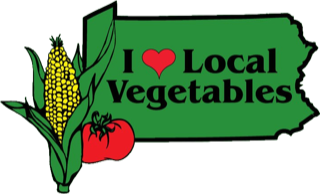In many ways I am glad to be able justify sitting here writing to you. This is the most wintery day so far and although I was outside to feed the animals I was glad to come in and take care of this writing.

Acorn squash was the first fall squash I ever grew as a teenager. The variety that we currently grow is a hybrid called Table Star. They have a distinctive yellow marking around the stem sort of like a star. The key is that they are sweeter than other varieties. The seed catalogue says "up to 50% sweeter than other acorn squashes". All I know is they taste Fantastic! And they are more dependable tasting than other squash. Here is the scoop on Acorn Squash:
Acorn Squash
Acorn squash are indigenous to the western hemisphere, so they were not known to Europeans until after the voyages of Columbus.The acorn squash probably originated in Mexico and Central America. When first discovered only the seeds were eaten as the flesh was considered too hard to be of value. At the time the flesh was much thinner. The Indians, nevertheless, favored thicker skins, and by selection developed more fleshy squash. It is ironic that today the seeds are very often thrown away or composted. Acorn squash is good and hardy to save throughout the winter in storage, keeping several months in a cool dry location such as a cold cellar. It is a good source of dietary fiberand potassium, as well as smaller amounts of vitamins Cand B, magnesium, and manganese.
A simple way to cook is to cut in half, scoop out the seeds, place cut side down on a plate with some water on it, Microwave on high for 8 minutes or until a fork can be inserted easily. I eat it plain, but you may like to put a tablespoon of butter and teaspoon of brown sugar in the cavity and stir in.
Thanks,
Art King
Harvest Valley Farms
724-816-0853


